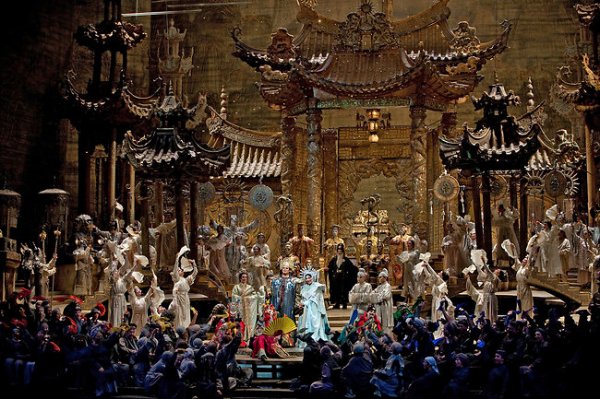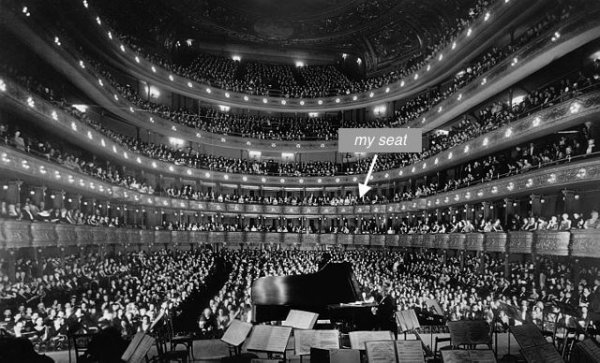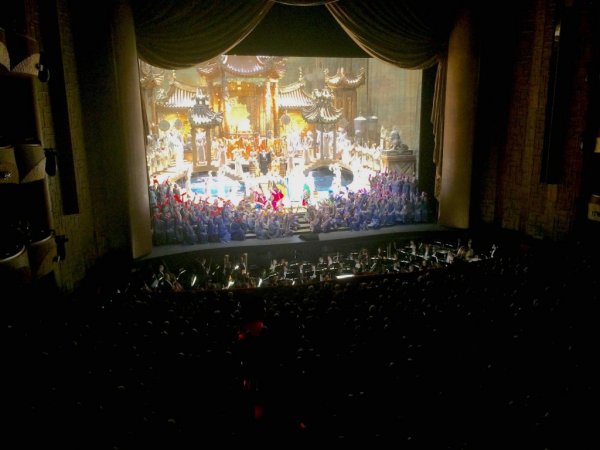Last Saturday was such as day. For all the countless hours that my system has pleased me, entertained me, and even thrilled me, it is almost a given that when I hear big scale live music, I come home and want to burn my system down. Of course, any sane person knows it is completely unrealistic to think that a home stereo can reproduce the real thing with the verisimilitude of the real thing. I readily accept that under the best possible circumstances, the best that we can hope for is a reasonable facsimile. But there are times, and in my case too frequently since I attend a lot of symphonic performances, when you just want to throw up on your system. At times like that, your mind turns to the dark side and reminds you about all the wasted hours you have spent evaluating even minor things such as the plating material on AC receptacles, various cables, and many other things of relatively minor importance. Sure, everything matters. Every audiophile worth his salt would agree to that. But there are also times that you realize that the degree to which these things matter are almost trivial when you look at the big picture. At those moments, one is starkly reminded that the sonic recreation of a real musical event is, for all practical purposes, impossible. Yup, that’s exactly what occurred last Saturday.
So much for the obvious. However, although the comparison of reproduced to real music is by definition, an insurmountable bar to clear (at least in the year 2015- all bets are off for 3015!), there is still much that can be learned by even occasional exposure to the real thing. With that in mind, I’d like to convey my recent experience at the Metropolitan Opera last Saturday when I saw an outstanding performance of Puccini’s Turandot.
To begin, the performance was superb. Turandot is one of Puccini’s most massive stagings and the Franco Zeffirelli production at the Met was spectacular. The set design was just exquisite.

The singers were all superb (no surprise there as the Met does not hire anything less than the world’s best). However, one singer in particular just blew me away. There are two sopranos in the opera- those of the characters Turandot, and the slave girl Liu. The two most memorable performances I listen to at home are the 1959 Living Stereo LP version (Mohr and Layton engineers) where these are played by Birgit Nilsson and Renata Tebaldi respectively, and a 1973 London LP version where the female leads are played by Joan Sutherland and Monserrat Caballe. As phenomenal as these performances are, I was stunned by the performance of Liu played by Hibla Gerzmava, a 35 year old Russian soprano who, although well known in opera circles, is hardly a household word. Her aria at the end of act 1 “Signore, ascolta!” left me literally in tears, and I can assure you I was not the only one in the house who cried. It is this kind of beauty in the conveyance of human emotion that makes people truly love opera. As good as Tebaldi and Caballe were, at least in this aria, for me, they could not touch Gerzmava. Truly breathtaking.
Here she is in Donizetti’s Lucia di Lammamoor from 5 years ago if you want to catch a glimpse of her remarkable powers.
https://www.youtube.com/watch?v=ykFYsOn5dI0
By the way, it really helps to have language translation screens at each individual seat since without them, unless you speak Italian, you have no idea what the hell anyone is saying. These were installed in the Met in 1995.
Turandot also contains arguably the most famous tenor aria in all of opera, "Nessun Dorma", an instantly recognizable piece of music that has lost its dark meaning by being repeatedly heard out of context. I should probably mention that the tenor, Marcelo Alvarez was very good, but then again, once you hear Jussi Björling (1959) or Pavarotti (1973), you will understand what great sounds like. Again, IMHO.
One thing that should be noted is that this is the Met! There is no sound amplification of the singers or orchestra. There is no sound reinforcement of any kind in the hall at all! In other words, this is the real deal, and very different than Broadway where every singer is mic’d. Metropolitan Opera Hall is a monster and holds 3800 people. La Scala, by comparison, seats 2800 and the Royal Opera House in Covent Garden, London seats 2200. Suffice it to say, as Sinatra said, “if you can make it here, you can make it anywhere”. But it’s even more imposing than that. Sometimes the singers are singing away from the audience! There is a part where Calaf, the lead tenor, sings to Princess Turandot who is on her throne at the back of the stage facing the audience. Therefore, Calaf sings facing her with his back to the audience and yet we can hear him clearly. Quite an accomplishment. As far as Turandot’s role, it is considered one of the most arduous in the operatic repertoire, as she has to sing in full-throated voice for most of the performance. Birgit Nillson and Joan Sutherland were well known to be able to belt it out (but yet with glorious finesse when called for). Our soprano on Saturday, Christine Goerke did an admirable job, but it is often said that singers like Nillson and Sutherland were true “once-in-a-lifetime” artists. I regret I never heard either of them live.
Let’s talk about sound levels a bit. I had my trusted SPL App running on my iPhone in my front sport coat breast pocket the entire time (mic facing up). I was able to look at it discretely anytime by holding my pocket open just a tiny bit. This didn’t bother anyone except my wife, who finally told me to stop doing that crap or I could walk home. You would think that after 42 years of marriage to an audiophile, she would know me by now. What can I say? I guess some people are just don’t know a good time when they see one!
The ambient level of the hall during intermission when there was only quiet chatter, was about 65-67 dB (all measurements are unweighted). When a few singers or less were accompanied by the orchestra in an average passage without much bass, the levels were about 80-82 dB. When the choir (at least 75 singers!) and multiple singers were accompanied by the full orchestra, levels would reach 85-87dB. And when it came time for balls to the wall crescendos, the meter peaked at anywhere from 90-93 dB. I did hit 95 dB but only once. As Floyd Toole said in an excellent interview located elsewhere on this forum, the perception of loudness is approximately double for a 10 dB increment in midrange and high frequencies, whereas it takes far less for a similar perception when listening to bass frequencies. I think there are some lessons there that are useful for home listening. (I always knew that 3dB correlated to a doubling of voltage and 6dB was a doubling of power, but I never heard anyone correlate dB level to perceived loudness until I watched the Toole interview.)
One of the most informative parts of the evening was listening to the orchestra from the superb vantage point of the first row of the Grand Tier, which is 2 levels above the orchestra, and the third of 6 levels in the hall. This location allows a very good perspective indeed for hearing the orchestra that one cannot achieve from listening anywhere on the ground floor orchestra level. The perspective I enjoyed is shown in the accompanying photos.

One can hear not only every instrument without obstruction, but the appreciation of the sound stage was also superb (see next photo below). Again, this is not readily accomplished from the orchestra floor. There, one is typically listening largely to indirect sound as well as direct sound that is often coming from a level somewhat higher than the orchestra seats. (This is hall dependent and also dependent on how far forward you are sitting). It is for this reason that some folks are adamant about sitting in the higher seating tiers of some hall such as Carnegie, Powell in St. Louis, Meyerson in Dallas and too many others to name. In other halls, this is less critical (such as Berlin and Boston), since great sound can be found in the orchestra seats in those halls. At Carnegie, many cognoscenti swear that the best sound is in the nose-bleed section, and would sooner choke than accept season tickets anywhere else!
A revelatory moment did indeed occur at one point that I really appreciated. In the third act, when the ice princess Turandot finally succumbs to love, her aria ends and there is a single measure that is played only by the bass drum and tympani. One can see the players as the two furthest to the right in my photo.

When the bass drum is actually being played, it us turned from its mostly upright position to a moderately angled position. This allowed me to have a truly unimpeded line to my ear from the mallet wacking the drum. The same was true for the tympani, which of course maintains its position on the floor, but the drum heads were also in my direct view. This measure gave new meaning to bass transient response without overhang or alteration of any kind for me since for most symphonic performances, I typically sit in the orchestra and never get the sort of direct sight line to the surfaces of those instruments. Ah, yet another reason I wanted to throw out my system when I got home. Despite very good bass performance with my JL Gotham subs, I couldn’t touch the sound of what I heard in the hall that night. What a revelation! What a pleasure!
That about wraps it up. If this entry is worth anything, it might just be to remind all of us to go hear some live music! There really is no substitute.
Marty
So much for the obvious. However, although the comparison of reproduced to real music is by definition, an insurmountable bar to clear (at least in the year 2015- all bets are off for 3015!), there is still much that can be learned by even occasional exposure to the real thing. With that in mind, I’d like to convey my recent experience at the Metropolitan Opera last Saturday when I saw an outstanding performance of Puccini’s Turandot.
To begin, the performance was superb. Turandot is one of Puccini’s most massive stagings and the Franco Zeffirelli production at the Met was spectacular. The set design was just exquisite.

The singers were all superb (no surprise there as the Met does not hire anything less than the world’s best). However, one singer in particular just blew me away. There are two sopranos in the opera- those of the characters Turandot, and the slave girl Liu. The two most memorable performances I listen to at home are the 1959 Living Stereo LP version (Mohr and Layton engineers) where these are played by Birgit Nilsson and Renata Tebaldi respectively, and a 1973 London LP version where the female leads are played by Joan Sutherland and Monserrat Caballe. As phenomenal as these performances are, I was stunned by the performance of Liu played by Hibla Gerzmava, a 35 year old Russian soprano who, although well known in opera circles, is hardly a household word. Her aria at the end of act 1 “Signore, ascolta!” left me literally in tears, and I can assure you I was not the only one in the house who cried. It is this kind of beauty in the conveyance of human emotion that makes people truly love opera. As good as Tebaldi and Caballe were, at least in this aria, for me, they could not touch Gerzmava. Truly breathtaking.
Here she is in Donizetti’s Lucia di Lammamoor from 5 years ago if you want to catch a glimpse of her remarkable powers.
https://www.youtube.com/watch?v=ykFYsOn5dI0
By the way, it really helps to have language translation screens at each individual seat since without them, unless you speak Italian, you have no idea what the hell anyone is saying. These were installed in the Met in 1995.
Turandot also contains arguably the most famous tenor aria in all of opera, "Nessun Dorma", an instantly recognizable piece of music that has lost its dark meaning by being repeatedly heard out of context. I should probably mention that the tenor, Marcelo Alvarez was very good, but then again, once you hear Jussi Björling (1959) or Pavarotti (1973), you will understand what great sounds like. Again, IMHO.
One thing that should be noted is that this is the Met! There is no sound amplification of the singers or orchestra. There is no sound reinforcement of any kind in the hall at all! In other words, this is the real deal, and very different than Broadway where every singer is mic’d. Metropolitan Opera Hall is a monster and holds 3800 people. La Scala, by comparison, seats 2800 and the Royal Opera House in Covent Garden, London seats 2200. Suffice it to say, as Sinatra said, “if you can make it here, you can make it anywhere”. But it’s even more imposing than that. Sometimes the singers are singing away from the audience! There is a part where Calaf, the lead tenor, sings to Princess Turandot who is on her throne at the back of the stage facing the audience. Therefore, Calaf sings facing her with his back to the audience and yet we can hear him clearly. Quite an accomplishment. As far as Turandot’s role, it is considered one of the most arduous in the operatic repertoire, as she has to sing in full-throated voice for most of the performance. Birgit Nillson and Joan Sutherland were well known to be able to belt it out (but yet with glorious finesse when called for). Our soprano on Saturday, Christine Goerke did an admirable job, but it is often said that singers like Nillson and Sutherland were true “once-in-a-lifetime” artists. I regret I never heard either of them live.
Let’s talk about sound levels a bit. I had my trusted SPL App running on my iPhone in my front sport coat breast pocket the entire time (mic facing up). I was able to look at it discretely anytime by holding my pocket open just a tiny bit. This didn’t bother anyone except my wife, who finally told me to stop doing that crap or I could walk home. You would think that after 42 years of marriage to an audiophile, she would know me by now. What can I say? I guess some people are just don’t know a good time when they see one!
The ambient level of the hall during intermission when there was only quiet chatter, was about 65-67 dB (all measurements are unweighted). When a few singers or less were accompanied by the orchestra in an average passage without much bass, the levels were about 80-82 dB. When the choir (at least 75 singers!) and multiple singers were accompanied by the full orchestra, levels would reach 85-87dB. And when it came time for balls to the wall crescendos, the meter peaked at anywhere from 90-93 dB. I did hit 95 dB but only once. As Floyd Toole said in an excellent interview located elsewhere on this forum, the perception of loudness is approximately double for a 10 dB increment in midrange and high frequencies, whereas it takes far less for a similar perception when listening to bass frequencies. I think there are some lessons there that are useful for home listening. (I always knew that 3dB correlated to a doubling of voltage and 6dB was a doubling of power, but I never heard anyone correlate dB level to perceived loudness until I watched the Toole interview.)
One of the most informative parts of the evening was listening to the orchestra from the superb vantage point of the first row of the Grand Tier, which is 2 levels above the orchestra, and the third of 6 levels in the hall. This location allows a very good perspective indeed for hearing the orchestra that one cannot achieve from listening anywhere on the ground floor orchestra level. The perspective I enjoyed is shown in the accompanying photos.

One can hear not only every instrument without obstruction, but the appreciation of the sound stage was also superb (see next photo below). Again, this is not readily accomplished from the orchestra floor. There, one is typically listening largely to indirect sound as well as direct sound that is often coming from a level somewhat higher than the orchestra seats. (This is hall dependent and also dependent on how far forward you are sitting). It is for this reason that some folks are adamant about sitting in the higher seating tiers of some hall such as Carnegie, Powell in St. Louis, Meyerson in Dallas and too many others to name. In other halls, this is less critical (such as Berlin and Boston), since great sound can be found in the orchestra seats in those halls. At Carnegie, many cognoscenti swear that the best sound is in the nose-bleed section, and would sooner choke than accept season tickets anywhere else!
A revelatory moment did indeed occur at one point that I really appreciated. In the third act, when the ice princess Turandot finally succumbs to love, her aria ends and there is a single measure that is played only by the bass drum and tympani. One can see the players as the two furthest to the right in my photo.

When the bass drum is actually being played, it us turned from its mostly upright position to a moderately angled position. This allowed me to have a truly unimpeded line to my ear from the mallet wacking the drum. The same was true for the tympani, which of course maintains its position on the floor, but the drum heads were also in my direct view. This measure gave new meaning to bass transient response without overhang or alteration of any kind for me since for most symphonic performances, I typically sit in the orchestra and never get the sort of direct sight line to the surfaces of those instruments. Ah, yet another reason I wanted to throw out my system when I got home. Despite very good bass performance with my JL Gotham subs, I couldn’t touch the sound of what I heard in the hall that night. What a revelation! What a pleasure!
That about wraps it up. If this entry is worth anything, it might just be to remind all of us to go hear some live music! There really is no substitute.
Marty
Last edited:

















